How to Start a Zero Waste Lifestyle: Easy Tips for Beginners
How to start a zero waste lifestyle? This guide provides simple steps to reduce waste and promote sustainability. You’ll learn to assess your waste habits, make easy swaps, and build new routines. Start your journey to a greener life here.
Key Takeaways
-
Embarking on a zero waste lifestyle focuses on minimizing waste through mindful consumption, eco-friendly products, and sustainable habits, fostering innovation and reducing landfill waste.
-
Simple swaps in daily routines, such as using beeswax wraps in the kitchen or bamboo toothbrushes in the bathroom, can significantly cut down household waste and ease the transition to zero waste living.
-
Building a zero waste community through local and online groups, workshops, and events provides support, shared knowledge, and encourages broader adoption of sustainable practices.
Introduction
Imagine a world where landfills are obsolete, and every item we use finds a second life. This utopian vision is at the heart of the zero waste lifestyle, a conscious journey where reducing waste is not just a practice but a philosophy. By embracing mindful consumption, prioritizing eco-friendly products, and adopting sustainable habits, we contribute to a greener planet. Remember, it’s not about perfection; it’s about progress.
Ready to take the plunge? Let’s explore the ins and outs of starting a zero waste lifestyle and unveil the simple yet impactful changes you can make today.
Understanding Zero Waste
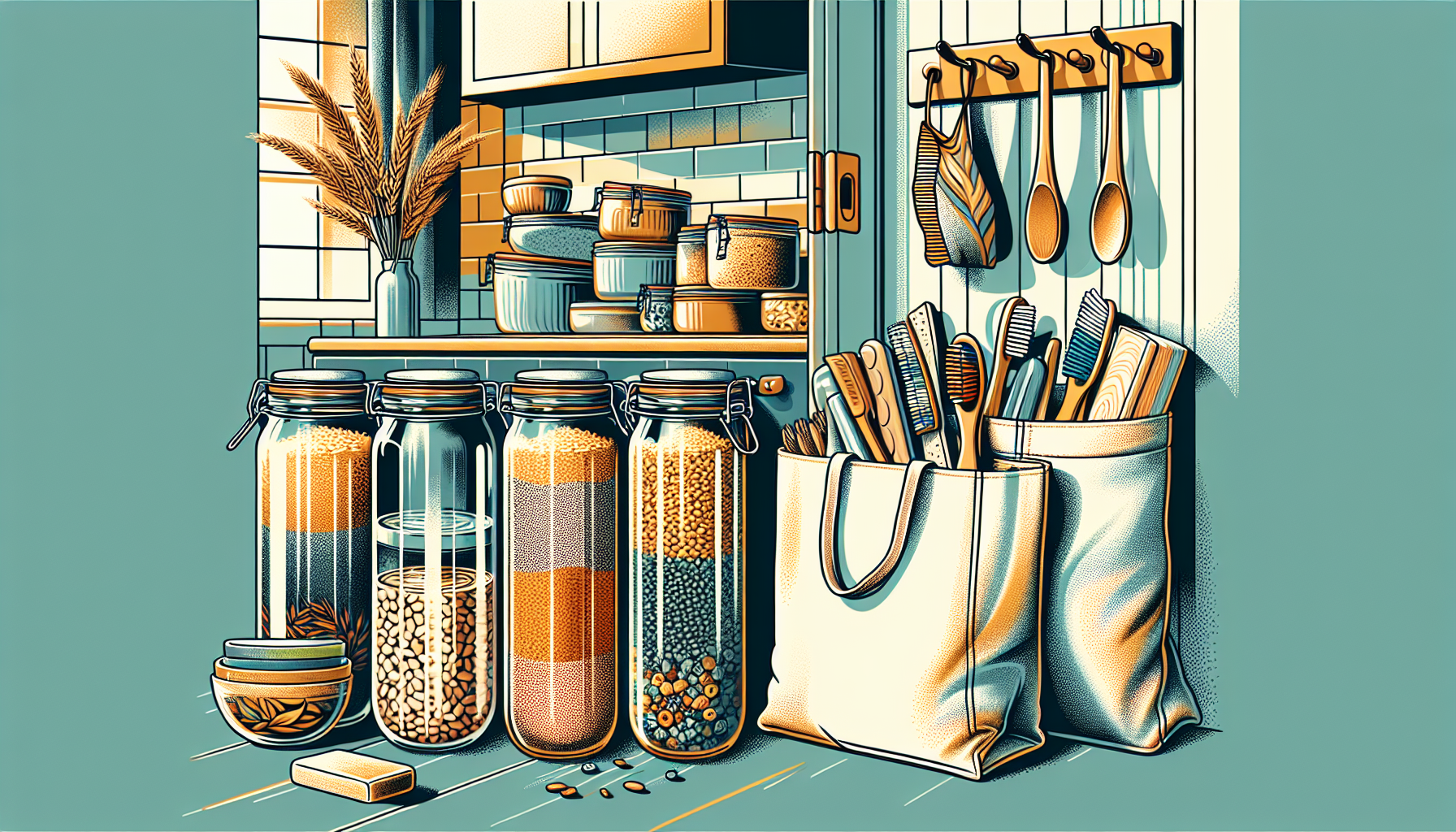
Embarking on a zero waste lifestyle is akin to setting sail on a vast ocean of possibilities. It’s a voyage that begins with understanding the zero waste movement’s guiding principles: to minimize our environmental footprint by managing waste in a way that doesn’t simply discard materials but reimagines their lifecycle.
What is Zero Waste?
At its core, a zero waste lifestyle is about adopting a circular economy mindset, where products are designed to be reused, repaired, or recycled, ensuring that as little as possible ends up as landfill waste. This approach not only conserves precious resources but also fosters innovation in how we design, consume, and repurpose our belongings.
Why Adopt a Zero Waste Lifestyle?
Choosing a zero waste lifestyle is not just a personal choice; it’s a collective step towards a more sustainable lifestyle. By making conscious decisions to reduce our waste, we:
-
Save money
-
Create a healthier environment
-
Become part of a larger movement that advocates for systemic change in manufacturing, policy, and social norms.
Assess Your Current Waste Habits
Before you can change the world, you need to understand your own impact on it. Assessing your current waste habits is the first step toward a zero waste life. It involves taking a closer look at what you throw away and determining the best ways to minimize this waste in your everyday life.
Conduct a Trash Audit
A trash audit is like holding up a mirror to your consumption habits. It’s an eye-opening exercise where you scrutinize your waste, categorize it, and pinpoint the primary culprits contributing to your trash pile. This analysis not only reveals the most frequent offenders but also informs the eco-friendly swaps you can make.
Set Realistic Goals
Once you’ve identified where your waste comes from, it’s time to set achievable zero waste goals. This isn’t about overhauling your life overnight; it’s about making intentional, manageable changes that cumulatively have a significant impact. By creating a plan of action, you’ll be able to track your progress and stay motivated on your journey to less waste.
Simple Swaps to Reduce Waste
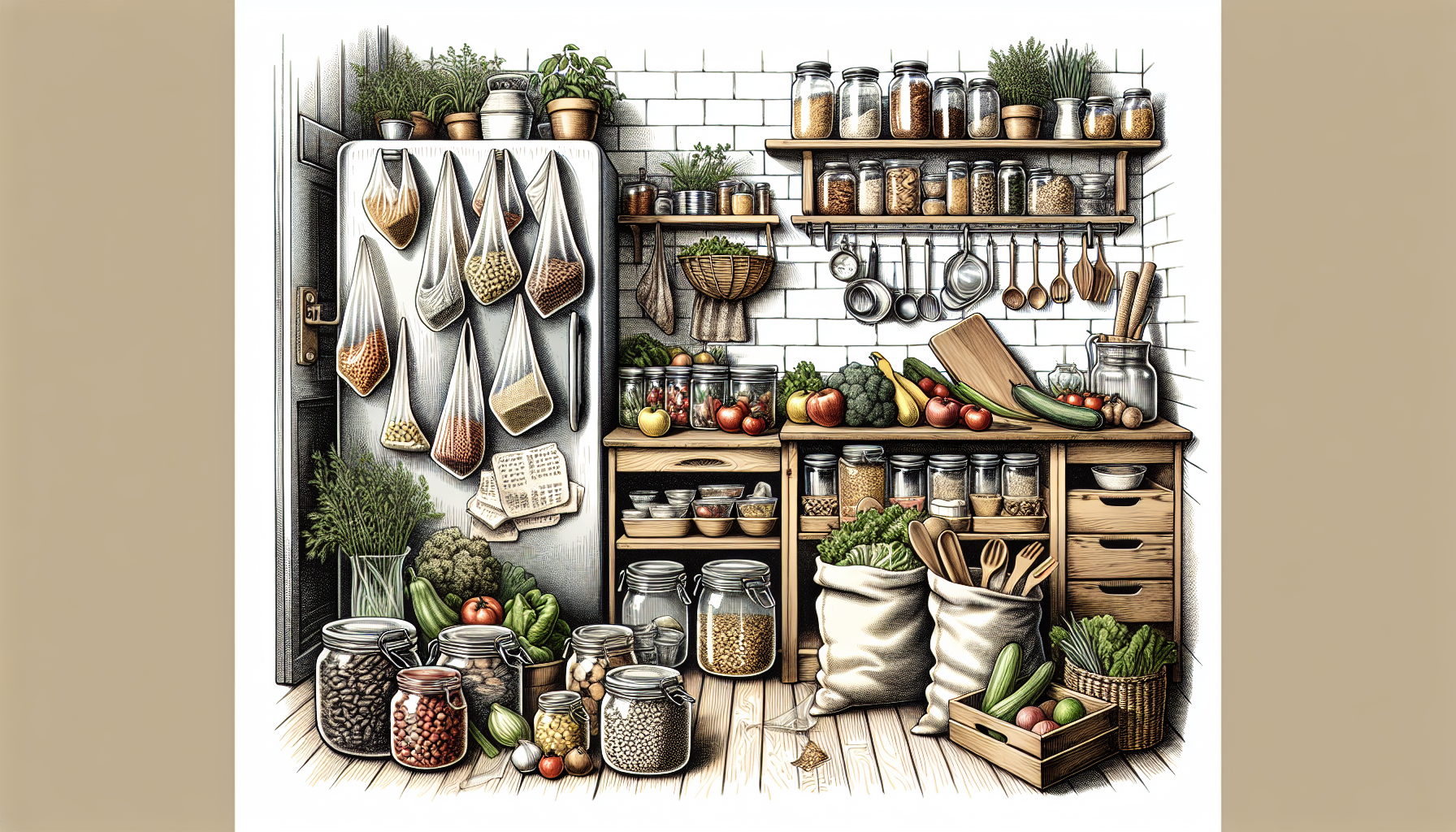
The path to a zero waste life is paved with simple swaps that can dramatically cut down on your waste production. These easy changes, or zero waste alternatives, can be integrated into your daily routines, gradually shifting your habits towards more sustainable practices without sacrificing convenience or functionality.
Kitchen Swaps
The kitchen is often the heart of the home and, unfortunately, a major source of household waste. But with a few thoughtful replacements, you can turn your cooking space into a zero waste haven.
From swapping disposable plastic wraps for beeswax covers to choosing glass containers over throwaway packaging, the possibilities are plentiful and practical.
Bathroom Swaps
Your bathroom routine also offers numerous opportunities for zero waste swaps. Simple changes like replacing plastic toothbrushes with bamboo ones, or opting for bar soaps instead of bottled products, can significantly reduce plastic waste and introduce sustainable alternatives into your personal care regimen.
On-the-Go Swaps
Even when you’re on the move, you can make zero waste choices. Carrying a reusable water bottle, packing your own coffee cup, and bringing along shopping bags are small acts that make a big difference in reducing your reliance on single-use plastics and contributing to waste reduction.
Reducing Food Waste
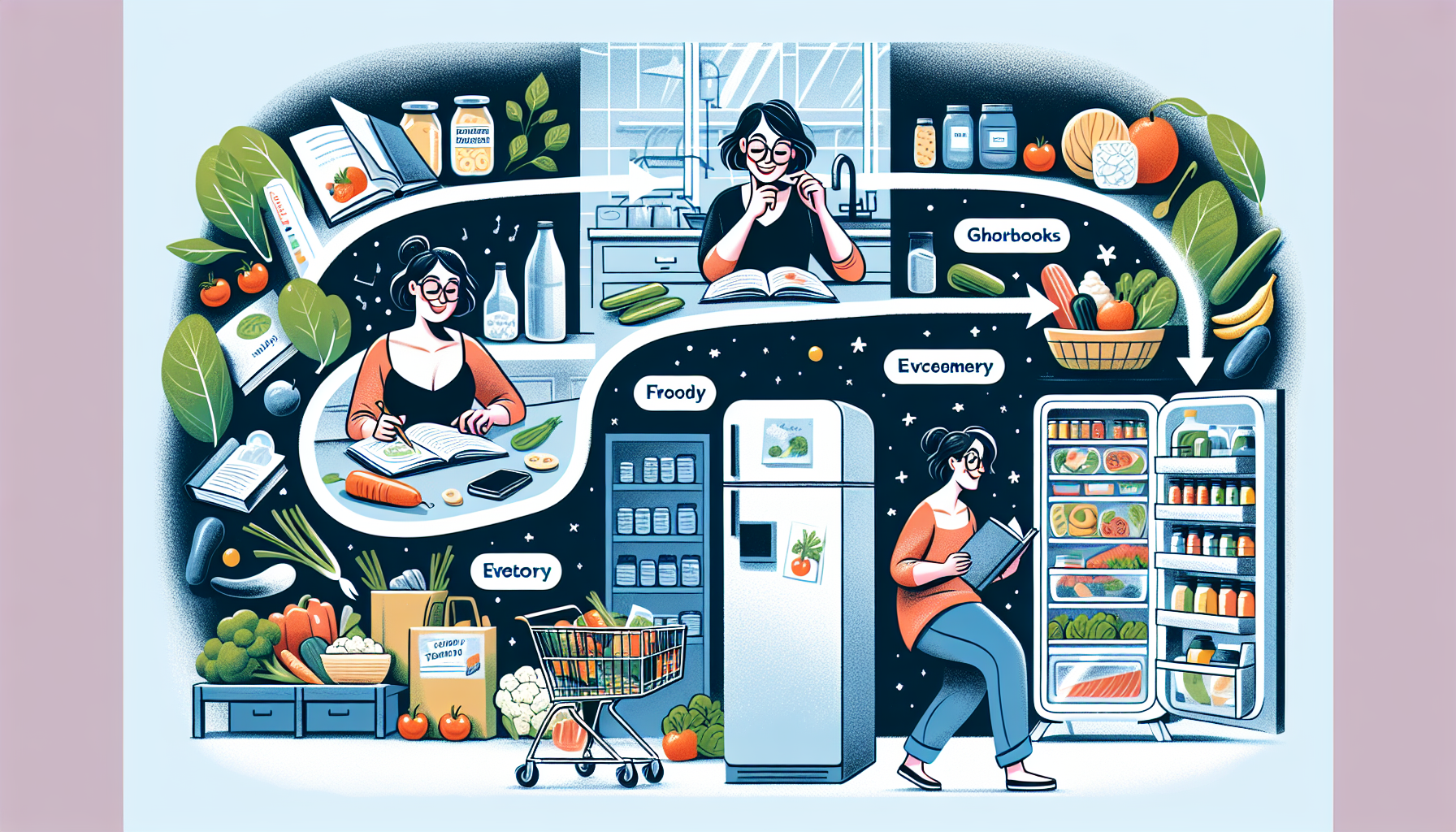
A significant portion of household waste comes from the kitchen, particularly food waste. In fact, a staggering amount of food is wasted globally, with far-reaching consequences for both the environment and our wallets. However, there are numerous strategies to curb this waste and ensure that food serves its purpose of nourishing rather than filling landfills.
Meal Planning and Storage
Efficient meal planning and proper food storage are your best allies in the fight against food waste. By understanding the intricacies of food labels and getting creative with leftovers, you can ensure that your groceries fulfill their culinary destiny and don’t end up squandered.
Composting Food Scraps
When it comes to food scraps, composting is a zero waste superhero. It transforms your kitchen waste into a valuable resource for your garden, enriching the soil and nurturing new life.
By composting, you’re not just reducing organic waste; you’re actively contributing to an ongoing cycle of growth and sustainability.
Shopping for Zero Waste Products
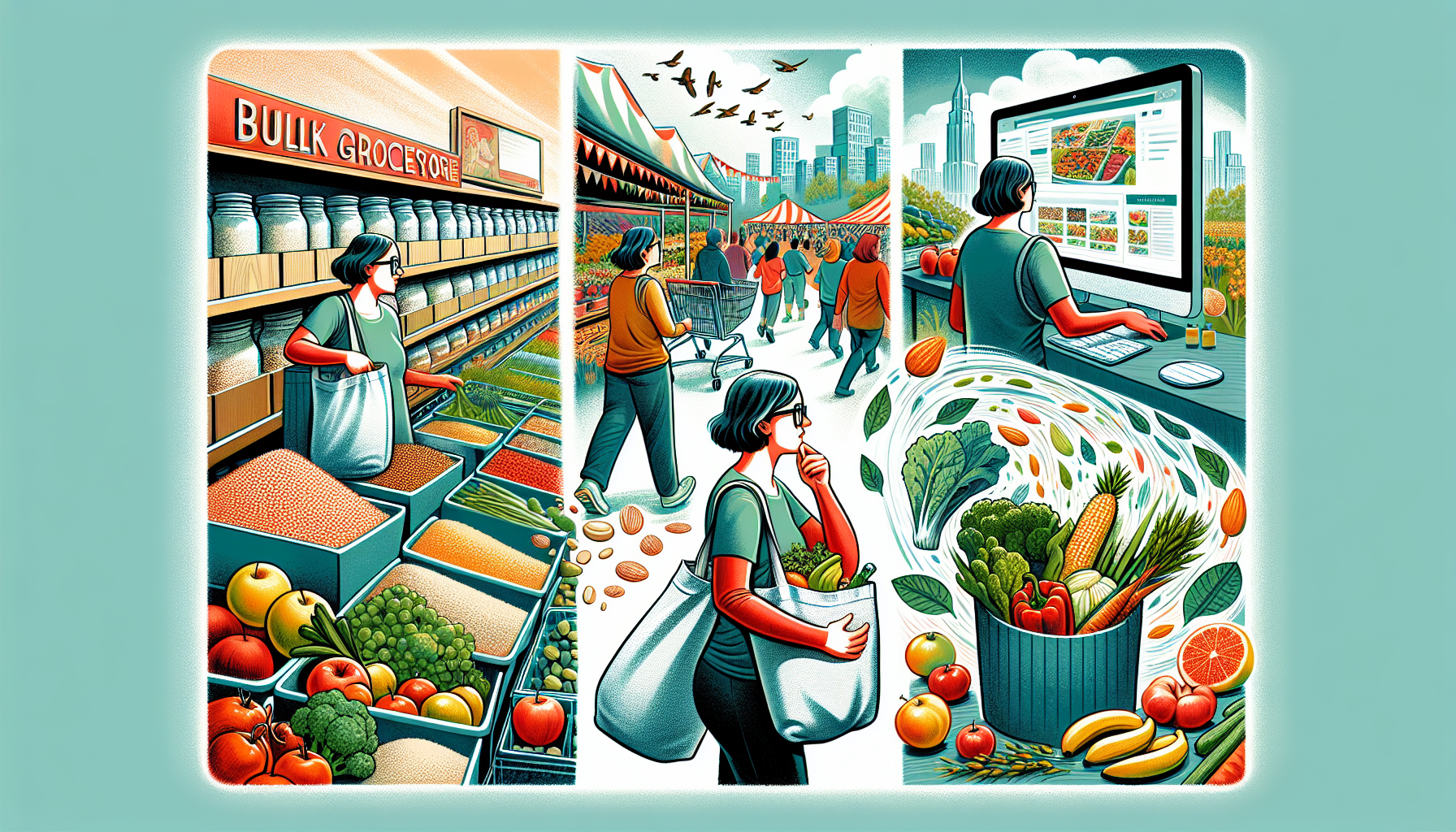
Navigating the world of zero waste shopping can be a delight once you know where to look. Whether it’s visiting bulk grocery stores, exploring local farmers’ markets, or clicking through online zero waste stores, there are abundant options for finding products that align with a sustainable lifestyle.
Bulk Grocery Stores
Bulk grocery stores are treasure troves for zero waste enthusiasts. Armed with an arsenal of reusable containers, you can stock up on everything from pantry staples to personal care items, all while sidestepping unnecessary packaging and reducing your environmental footprint.
Farmer's Markets
Farmers’ markets are not just about supporting local agriculture; they’re also a fantastic source of unpackaged, fresh produce. By bringing your own bags and containers, you can enjoy the bounty of the earth without the burden of plastic waste, which includes the use of plastic bags.
Online Zero Waste Stores
For those times when you can’t make it to a physical store, online zero waste shops offer a convenient alternative. These digital marketplaces are dedicated to providing a wide array of sustainable products, all with a commitment to minimal and recyclable packaging.
Creating New Zero Waste Habits
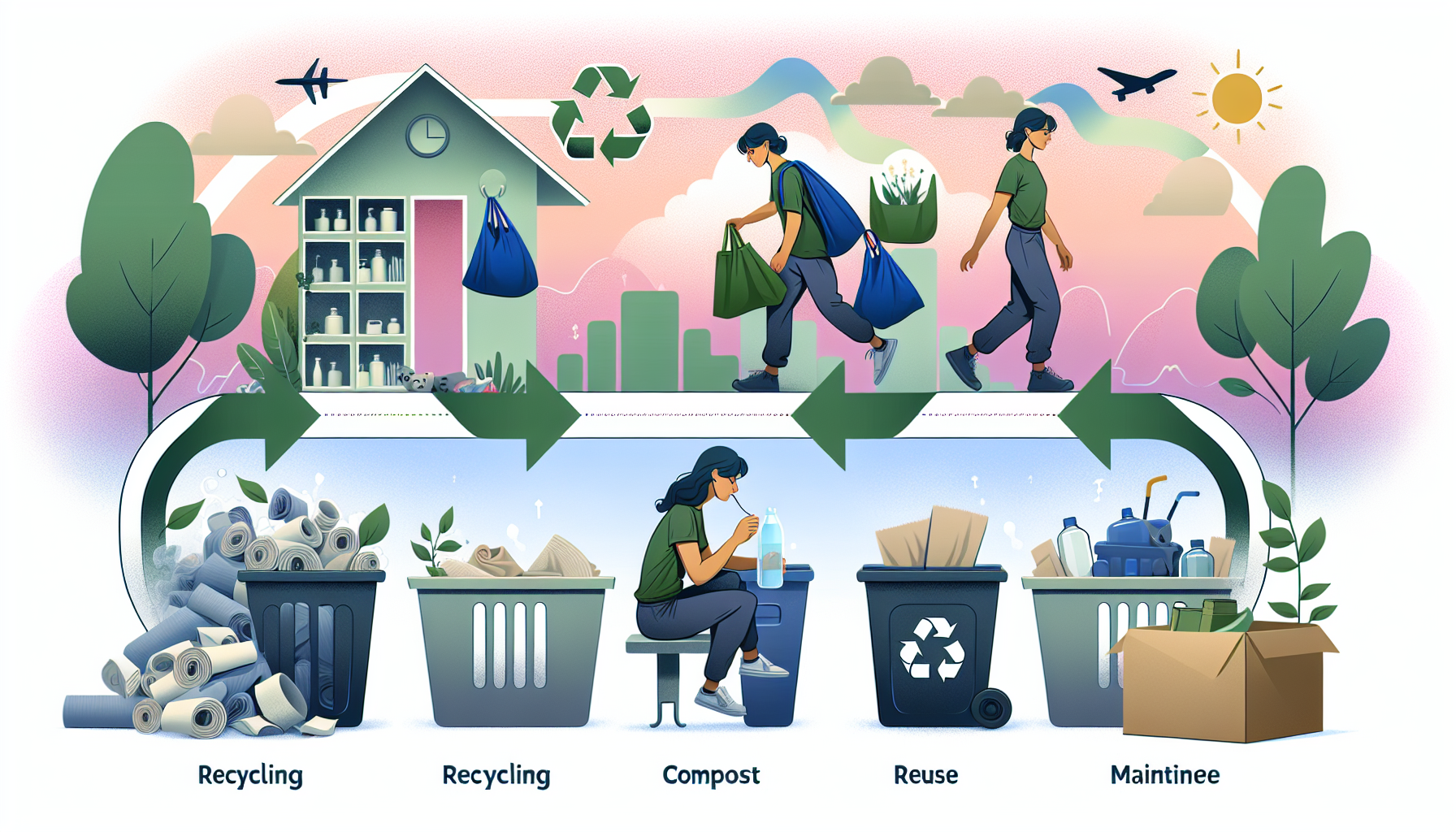
The transition to a zero waste lifestyle isn’t just about swapping products; it’s about fostering new habits that will stick. Building these routines takes time and intention, but the results are well worth the effort.
Start Small and Build Up
Starting small is key when forming new zero waste habits. By focusing on one or two changes initially, you can gradually incorporate more sustainable practices into your routine without feeling overwhelmed.
This incremental progress is what leads to lasting impact.
Track Your Progress
Keeping track of your zero waste progress is not only motivating but also immensely satisfying. By monitoring the positive changes you’re making, you can celebrate your successes and stay committed to your goals.
Overcoming Challenges
No journey is without its obstacles, and the zero waste path is no exception. From time management to limited access to sustainable products and social pressures, there are challenges to confront. However, with the right strategies and support, these hurdles can be overcome.
Time Management
Time management is an essential skill in maintaining a zero waste lifestyle. By planning and prioritizing, you can find ways to integrate eco-friendly practices into your busy life without sacrificing convenience.
Access to Sustainable Products
Access to sustainable products can sometimes be limited, but there are ways to navigate these challenges. By tapping into zero waste communities and planning your purchases, you can ensure you have the eco-friendly products you need.
Social Norms and Peer Pressure
Handling social norms and peer pressure can be tough when you’re adopting practices that go against the mainstream. But remember, every zero waste choice you make sets an example and can inspire others to join the movement.
Building a Zero Waste Community
A strong community is the backbone of the zero waste movement. By connecting with others who share your passion for sustainability, you can create a support network that inspires and uplifts.
Together, you can amplify your impact and make zero waste living the norm rather than the exception.
Join Local and Online Groups
Whether through local meetups or online forums, joining groups dedicated to zero waste can provide you with invaluable resources, guidance, and camaraderie. These communities serve as a wellspring of shared knowledge and encouragement, helping you navigate your zero waste journey with confidence.
Host Workshops and Events
Hosting workshops and events is a fantastic way to engage others in the zero waste lifestyle. By organizing activities that promote sustainable practices, you foster community involvement and contribute to the collective effort to reduce waste.
Summary
As we conclude our exploration of the zero waste lifestyle, it’s clear that every individual has the power to make a difference. From understanding the basics of zero waste to creating new habits and building a community, each step on this journey contributes to a greener, more sustainable future. Remember, it’s the collective impact of our small, consistent actions that will drive the change we wish to see in the world.
Frequently Asked Questions
What does a zero waste lifestyle involve?
A zero waste lifestyle involves minimizing waste production by maximizing the reuse, recycling, and composting of materials, aiming to send as little as possible to landfills or incinerators. Embracing this lifestyle can have a positive impact on the environment and reduce your ecological footprint.
How can I start reducing waste in my home?
You can start by conducting a trash audit to assess your waste habits and then set realistic goals for reduction. Making simple swaps like using reusable containers and bags is a great way to start reducing waste in your home.
Is it expensive to live a zero waste lifestyle?
Living a zero waste lifestyle may involve higher upfront costs for eco-friendly products, but it can save money in the long run by reducing the need for single-use items and promoting mindful consumption.
How can I maintain my zero waste habits over time?
You can maintain your zero waste habits by starting small, tracking your progress, seeking support from zero waste communities, and gradually building up. Stay motivated and share experiences to overcome challenges.
What if I don't have access to bulk stores or zero waste products?
Don't worry if you don't have access to bulk stores or zero waste products! You can explore online zero waste stores or connect with local and online zero waste groups for alternative options and resource sharing.








